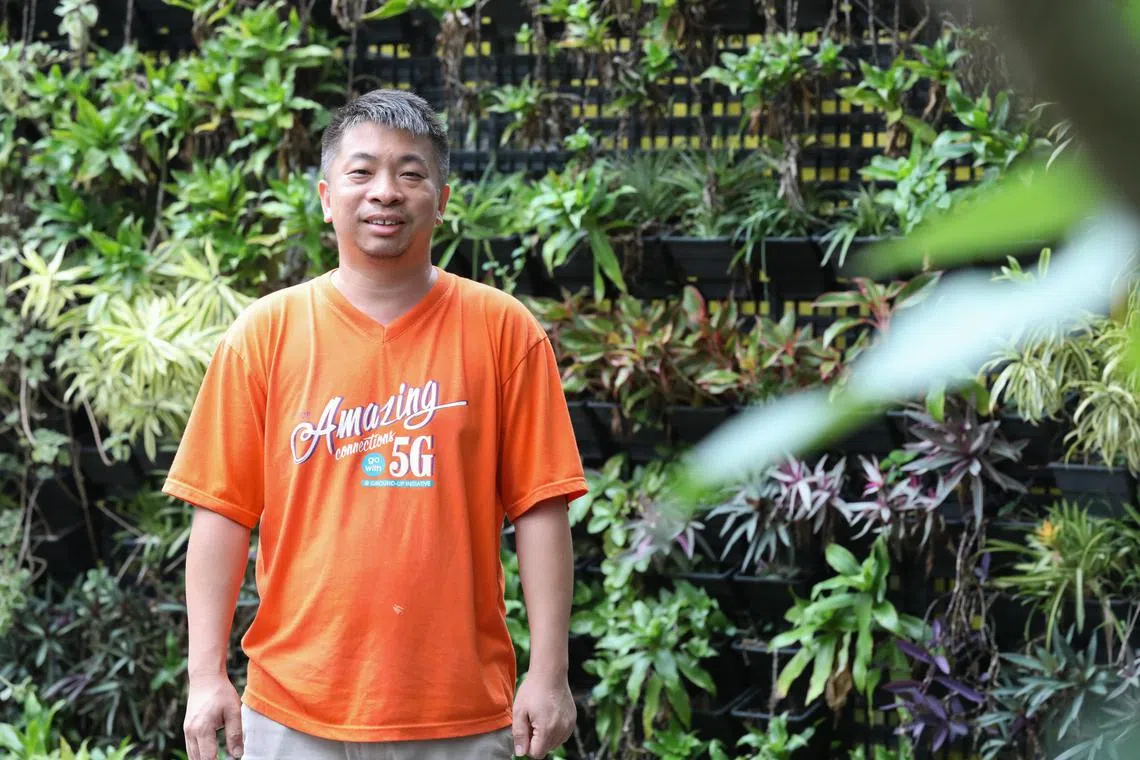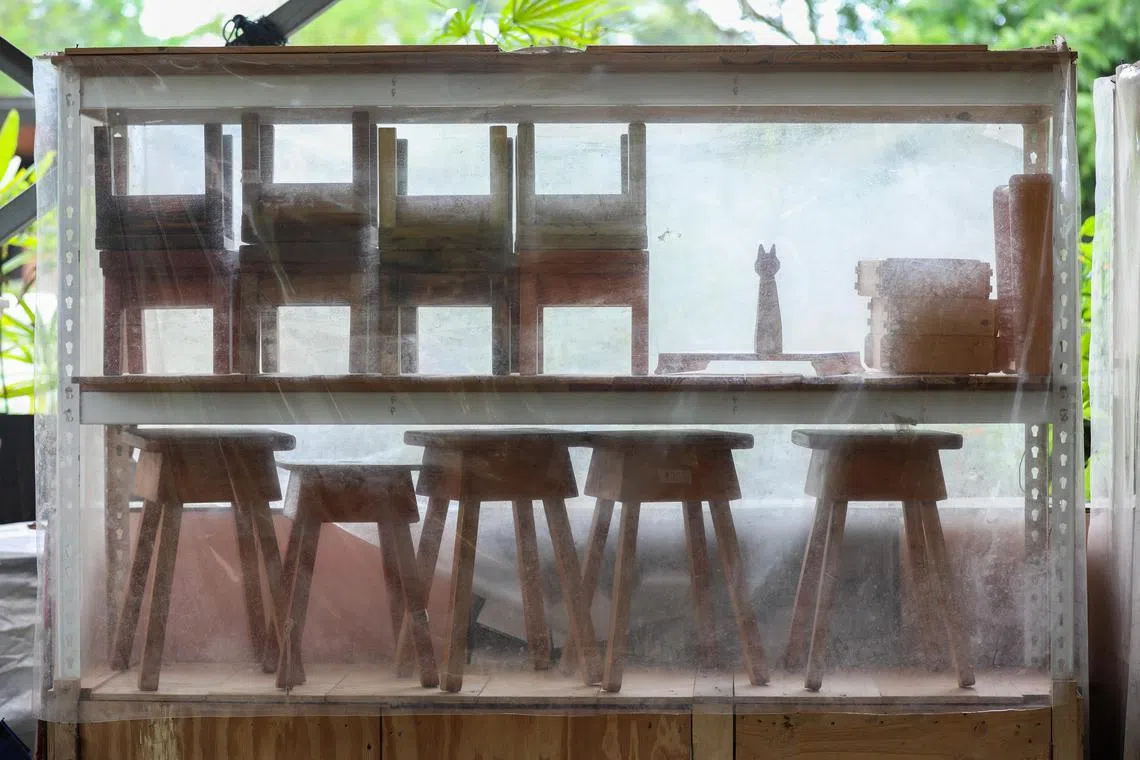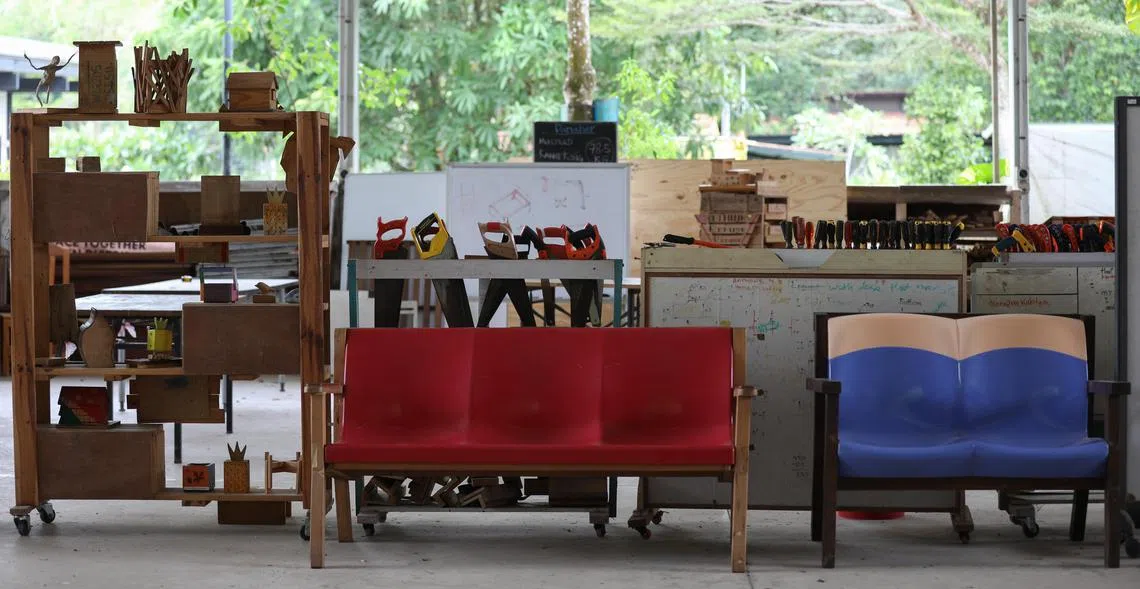Back to the kampung days, 21st-century style
Non-profit Ground-Up Initiative connects people with nature, themselves and others for a happier and more sustainable future

DEEP in the foliage of Yishun rests a hidden sanctuary that bursts into life on the weekends.
Young and old alike tend vegetable crops such as kai lan and kang kong, craft furniture from recycled wood pallets, cook, compost, bake bread and pizza in an earth oven, and repair broken bicycles.
The common thread that binds the community at Ground-Up Initiative (GUI): All see themselves building a world in which they aspire to live, and a future in which they believe.
GUI was established in 2008 to address environmental and social concerns plaguing cities. It does this by creating a 21st-century kampung (or village) culture with an emphasis on four building blocks: A healthy body and mind, community involvement, purpose in life, and connection to nature.
“The work of GUI does exactly that,” said executive lead Cai Bingyu in an interview with The Business Times. “We connect and heal.”
Cai began his journey with the non-profit in 2011 as a volunteer. He had a full-time job at an architecture firm at the time, but left after he grew jaded of “helping the rich get richer”.
Navigate Asia in
a new global order
Get the insights delivered to your inbox.

He now spends his days at GUI’s 2.6-hectare (ha) plot of land at Lorong Chencharu.
“If you ask me why I’m still here, it’s really because of the people that we have gone through thick and thin with, and the community that has been here trying to find ways to support us,” said Cai.
“We cannot fail – there are just too many people trying to make this work.”
SEE ALSO
GUI has 14 salaried employees, 50 core volunteers, and 2,500 active volunteers. It estimates that it has had an impact on more than 150,000 lives over its 16 years of existence.
That reach earned GUI an Impact Enterprise Excellence Award in the small and medium enterprise category at the 2024 Sustainability Impact Awards jointly organised by BT and UOB.
This year, the organisation aims to reach 3,600 recycling workshop participants, harvest 800 kg of produce, and process nine tonnes of wood waste.
GUI’s main source of income comes from working with companies and schools, said Cai.
Under its Farm our Hearts programme, corporate volunteers get to experience harvesting produce that is then donated to a beneficiary of their choice.
At Wood for Good workshops, corporate sponsors get to try their hand at woodworking – using recycled pallets to co-create simple furniture items that are donated to underprivileged households.


The non-profit’s communal nature has organically spawned other eco-initiatives, such as the Lorong Chencharu Bicycle Co-op where volunteers repair abandoned or donated bicycles. These are then returned to the community, including to migrant workers in Singapore.
“GUI is very lucky,” said Cai. “A lot of the volunteers who come here have their own ideas (that are) good for the environment or good for engaging the community.
“A real community space, we think, is only possible when the people are involved in building up the space.”
New home, bigger dreams
Above the bustle at GUI’s grounds, however, the sound of construction rings loud. Work has begun to convert the site into a residential property.
GUI’s lease was supposed to expire last year, and it was to have relocated to a 1.3-ha replacement site adjacent to HomeTeamNS Khatib.
The lease has since been extended, and GUI has until the end of September to move out, but it lacks the funds to do so.
It is trying to amass S$4.5 million for building works, and Cai hopes the Awards will help increase awareness of its fundraising efforts.
One of the team’s long-term aspirations for the new space is to build an interactive museum. No concrete plans have been made, but Cai would like to paint a picture of a future world if nothing is done to protect it.
“(It will be) a museum that is alive; so, not one where you go and see old pieces… but something that is powerful enough for young children (to see) something from the books come to life, something that is very interactive.”
Succession plans
With big ambitions for GUI’s future, succession planning is also a concern.
“A lot of us want to see GUI grow,” said Cai. “We have big visions for where it can go, but we’re also mindful about succession. I won’t be able to lead it forever.”
All but one of GUI’s 14 employees is older than 41-year-old Cai. They are looking for someone young to learn the ropes, but the salaries GUI can afford fall short of market rates.
“I’m constantly thinking about the economics of the new space,” said Cai. “How can I make sure we bring in more revenue so that we can attract talent? So that when young people come on board, we can ensure they can make a proper living, get married, buy a house, have children and don’t have to worry about money?”
Decoding Asia newsletter: your guide to navigating Asia in a new global order. Sign up here to get Decoding Asia newsletter. Delivered to your inbox. Free.
Copyright SPH Media. All rights reserved.





